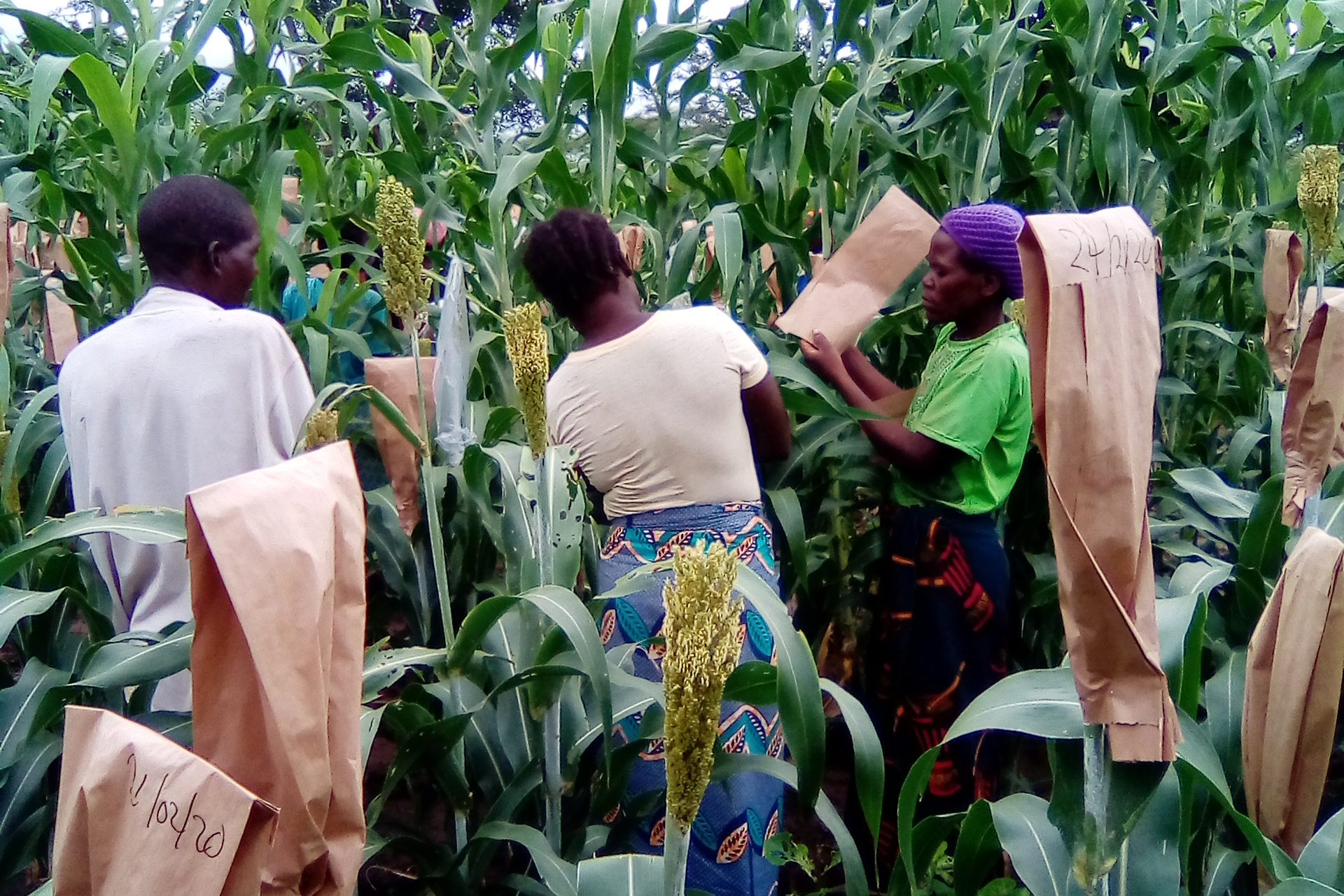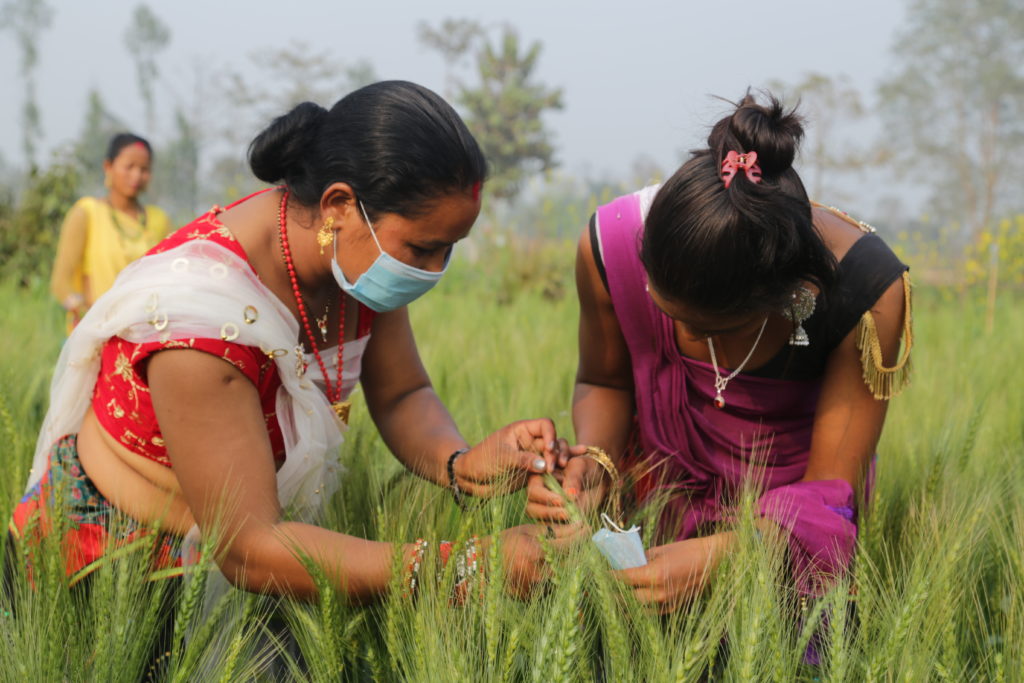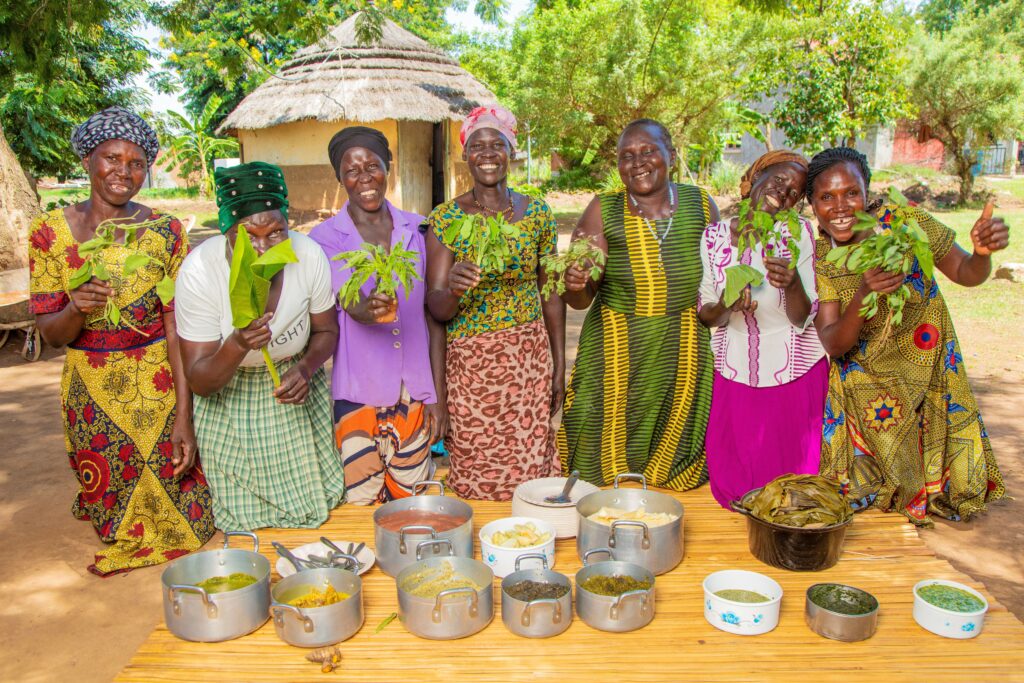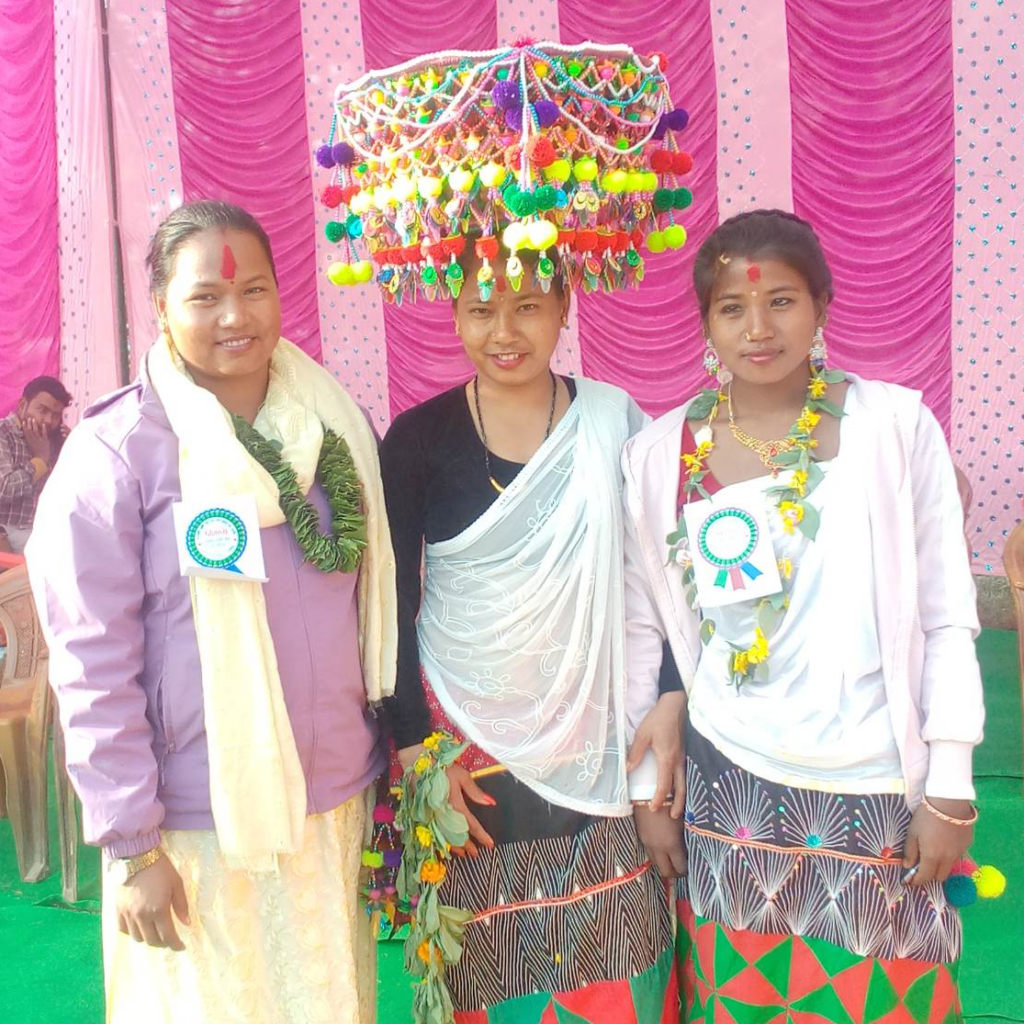A partnership initiative between CIMMYT, ICRISAT WCA and OXFAM
Background
Environmental and socio-economic conditions in many zones of West Africa are rapidly changing. Unstable governments and unprecedented variability of weather conditions are affecting millions of farmers, who are already facing food insecurity on a regular basis. Government services, financial services, input supplies are all compromised by insecurity, affecting especially vulnerable households. In addition, many of these regions are hosting refugees, who had to leave their farms due to armed conflicts. To mitigate these risks and optimize food production by adapting cropping systems, farmers will need access to new and more diverse crop varieties. Especially in areas affected by insecurity, local organizations and institutions are needed for disseminating appropriate seed and information at scale by their own members, using culturally acceptable methods and tools.
Project Description
The project will consist of a partnership between CIMMYT, ICRISAT and Oxfam focused on improving crop diversity for food security in West Africa. The partners plan to merge their experiences to strengthen key elements of the seed system for food security crops in a participatory manner, with a focus on community organization and business model assessments. The initial project will be implemented in Mali and Nigeria. It will focus on a detailed understanding and documentation of the strengths and weaknesses of existing seed systems and innovations developed by farmer groups and organizations. The pilot phase is currently underway (October 2022 to September 2023) and a continuation is planned after from October 2023 onwards.
Partners & Approach
CIMMYT has recently taken on responsibilities for sorghum and pearl millet improvement globally and is thus interested to support and complement ICRISAT activities in West and Central Africa. ICRISAT over the past 20 years has developed trustful relationships with different actors including farmer cooperatives for the identification of new varieties and seed production in Mali and Nigeria. ICRISAT and its national partners have breeding materials available, and tools for effective exchange of information and data. Oxfam works on social mobilization and farmer and NGO engagement, focusing on women and marginalized groups. Along with local NGO partners, the SD=HS program has established over 750 farmer field schools (FFS) on managing plant genetic resources and participatory plant breeding, and farmer seed production and marketing, using participatory action research to address group and gender dynamics within communities. The program aims to improve the capacity of farmers and NARS in working together as equal partners.
Insecurity demands initiatives specifically dealing with the living conditions of the target communities and smallholder farmers. Farmer Field Schools offer opportunities to discuss these conditions and create shared responses. Activities will differentiate between men and women, and younger and older people. The program combines scientific expertise with actively engaging farmers to contribute their knowledge, resources, and motivation to identify varietal innovations for themselves and their communities. Sharing resources and capacities, and equipping seed system actors to collaborate effectively and equitably, is essential to increase food and nutrition security, especially in the context of climate change and insecurity.
Promoting New Business Models
Access to new and more diverse varieties will be accommodated by a) establishing an inventory of preferred varieties through Focus Group Discussions in selected smallholder communities and other exchanges with farmer-to-farmer networks; b) securing availability of early generation seed for smallholder community seed producer groups; c) supporting farmer seed production and marketing in local markets or through contracts with government agencies and NGOs; d) where relevant involve seed certification agencies, and e) securing policy support for such production and marketing from local to the national government.
In emergency contexts, this will create availability of locally produced, preferred, and better adapted seed in comparison with longer and more top-down supply channels normally functional in emergency seed supply operations. The proposed new model therefore heavily relies on the active involvement of communities and locally operating farmers organizations and NGOs.
Activities
The planned review of ongoing farmer engagement in seed system innovations, harvesting and synthesizing of lessons will be geared towards:
- Application and testing of lessons from Mali to a new context in Northern Nigeria. This adaptation process will provide learning experiences for scaling the model in new settings and cultural contexts.
- Lessons about business models for farmer managed seed enterprises in fragile and humanitarian environments.
- An assessment of priority seed system development needs and learning opportunities will guide the priorities for a learning agenda and the focus of a communication strategy.
- The project team will identify lessons and communication products that can be of general benefit for wider distribution, on channels used by humanitarian aid and seed system development practitioners.
- Regular focus group discussions will be held between project staff with village level farmer groups to prepare for and manage seed production in the growing season 2023, addressing agronomic issues concerning crop cultivation, marketing issues and legal context, as well as safety issues impacting on farmer seed production and marketing.
- Securing timely access to required quantities of input seed for the village level organizations.
- Supporting marketing intelligence operations of the village level organizations.
- Identifying sustainability requirements regarding farmer seed production and marketing activities, considering gender and youth roles and interests in particular.
Expected Results
Results will be achieved by combining the mutual strengths of ICRISAT’s long-time presence in the region and the knowledge acquired on geographies and agro-ecosystems’ functioning, and the experiences obtained by Oxfam through its coordinating role in the globally operating SD=HS program which focusses on farmers’ roles in variety selection and adaptation, nutrition, and farmer seed production and marketing, and through past activities of its national offices with the functioning of farming systems and seed systems. Expected results and impact include:
- Improved availability of preferred seed of staple crops, with a focus on sorghum, pearl millet and their companion crops such as cowpea, groundnut, and bambara nut.
- Improved access to relevant seed supply for farmers affected by recurring seed insecurity.
- Increased resilience of agrarian livelihoods in fragile environments by reducing post-disaster recovery time through strengthened local availability of locally demanded and adapted seeds and varieties.
- Improved functioning of local seed and agri-input value chains leading to economic opportunities around job creation and strengthened incomes.
- Increased availability of better and locally adapted and in-demand varieties leading to better yields and strengthened food and nutrition security.









